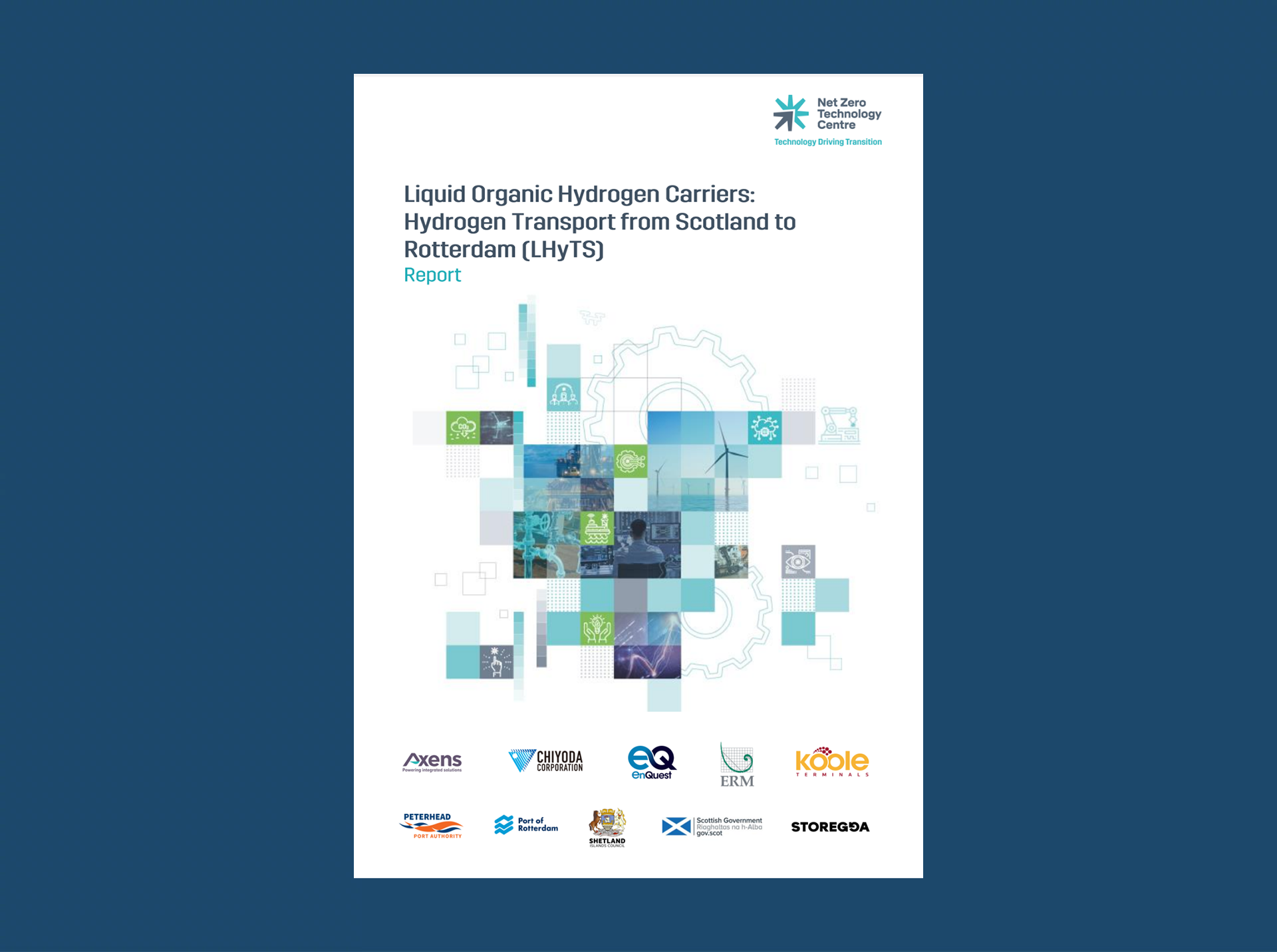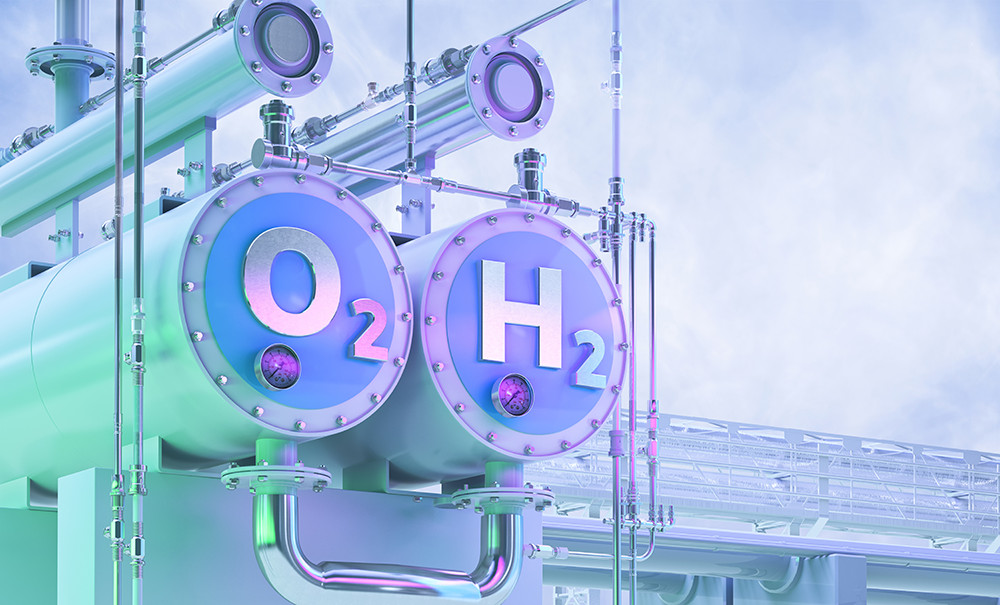NEWS & INSIGHTS | reports
Liquid Organic Hydrogen Carriers: Hydrogen Transport from Scotland to Rotterdam (LHyTS)

Scotland has the potential to become a net exporter of hydrogen by 2045. A key enabler of an efficient hydrogen energy system will be the development of robust transport and storage solutions. Given hydrogen’s relatively low volumetric energy density compared to fossil fuels, a solution for transporting hydrogen at scale to reach large scale end-users is pivotal.
The Liquid Organic Hydrogen Carriers for Hydrogen Transport from Scotland to Rotterdam (LHyTS) project explores the feasibility of a pilot trial for transporting bulk hydrogen in the form of Liquid Organic Hydrogen Carriers (LOHC) from Scotland to Rotterdam. The project investigates the necessary infrastructure for hydrogenating Toluene (TOL) to Methylcyclohexane (MCH), loading, transporting, unloading, and dehydrogenating MCH upon arrival in Rotterdam, preparing hydrogen for distribution to end-users.
Two potential export terminals in Scotland, St Fergus and Sullom Voe Terminal, were considered, with the import location being Koole Terminals in the Port of Rotterdam. The project outlined two pilot trial scales: a small-scale scenario, resulting in the export of 40,100 tonnes of hydrogen per year by 2027, and a large-scale scenario, corresponding to 250,500 tonnes of hydrogen per year by 2031.
Three key findings emerged from the study:
- Location Assessment: All locations reviewed as part of the feasibility study have sufficient land availability for the pilot trial.
- Scenario Development: No technical barriers for transport and storage of hydrogen as LOHC were identified. Technology and scenario optimisation opportunities have been identified.
- Cost Summary: The Levelised Cost of Hydrogen Transport (LCOHT) for the small- and large-scale scenarios are £4.80/kgH2 (€5.56) and £2.56/kgH2 (€2.96) respectively, assuming an operational period of 20 years.
To further advance this opportunity, several recommendations and next steps have been proposed:
- Plan Phase 3 activities, including stakeholder engagement and project funding applications.
- Complete a pre-FEED scope of work to optimise site designs, including heat and utility optimisation and repurposing existing infrastructure.
- Support technology development to enhance LOHC system efficiency and integration.
Subscribe for the latest updates



